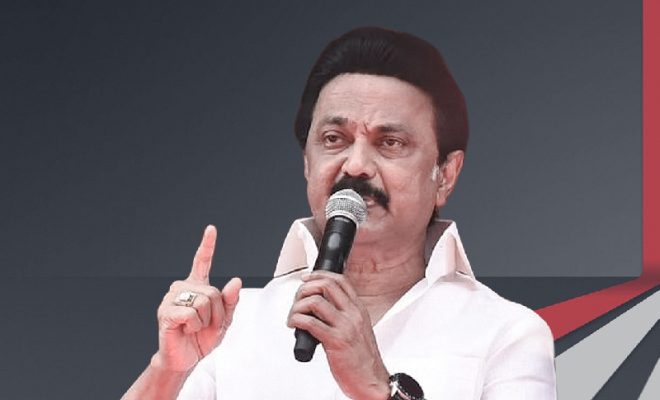Stalin critiques Governor’s role in TN Politics

In a charged political climate in Tamil Nadu, DMK president and Tamil Nadu CM M K Stalin conveyed a rankling assault on Governor R N Ravi, blaming him of abusing his position for political pick up. The catalyst for Stalin’s shock was the later swearing-in of K Ponmudy as a minister, a move encouraged by the mediation of the Supreme Court. Tending to an intense swarm assembled in Tiruchirapalli on March 22, Stalin propelled the DMK’s race campaign with blistering reactions of what he considered as the Governor’s “over abundance” in recent days. His allegations centered on Ravi’s “abuse of Raj Bhavan” charge for dividend purposes, signaling the DMK’s firm position against any seen endeavors by the BJP to control the governor’s office for their advantage.
Leveraging Open Estimation on Federalism
Stalin’s pointed study of the governor’s activities isn’t just an explanation but a calculated key move pointed at resonating with the feelings of Tamil Nadu voters who prioritize federalism and state independence. By reliably singling out Ravi, Stalin looks to tap into the electorate’s concerns about the concentration of control and seen impedances from the central government. The DMK’s long standing grievances with the governor’s office emphasize the party’s dispute that Ravi has transgressed his protected boundaries. This key situation adjusts with the broader account of the DMK, situating itself as a stalwart protector of Tamil Nadu’s interface against what it sees as infringements by the BJP-led central government.
Governor’s Conduct: A Key Race Issue
The DMK’s laser center on the governor’s conduct serves a dual reason: shedding light on concerns around the centralization of control and situating the party as a winner of Tamil Nadu’s interface. Later occurrences, such as the extended delay in designating Ponmudy as minister, have served to strengthen the party’s account of the governor’s overextension. By foregrounding issues such as evenhanded conveyance of assets and state rights, Stalin points to galvanize support for the DMK whereas underscoring his commitment to fulfilling the needs of the Tamil Nadu people. This strategy serves as an energizing cry for voters but moreover outlines the party’s proactive approach to administration and promotion for territorial independence.
Also Read | INS Kolkata, with 35 captured pirates, arrives in Mumbai harbor
Political Analysts’ Viewpoint
Political examiners weigh in on Stalin’s scorching evaluation of the senator, seeing it as a genuine reaction to what they see as Ravi’s politicization of his party. They contend that when the senator performs divided activities, it becomes necessary for the Governor to reply appropriately, particularly on a stage when it’s the time of decision campaign. Moreover, the DMK’s accentuation on center-state relations reverberates with its chronicled promotion for states’ rights, situating the party as a stalwart shield of government standards. This reverberates with voters who prioritize independence from central specialists and strengthens the DMK’s commitment to defending Tamil Nadu’s interface.
The DMK’s key focus on the governor’s office reflects its broader discretionary methodology, tapping into open opinion with respect to federalism and state independence whereas challenging seen encroachments on Tamil Nadu’s independence by the central government. As the race campaign unfurls, Stalin’s red hot talk against Ravi is likely to stay a central subject, symbolizing the DMK’s commitment to championing the rights and yearnings of the Tamil Nadu people.



